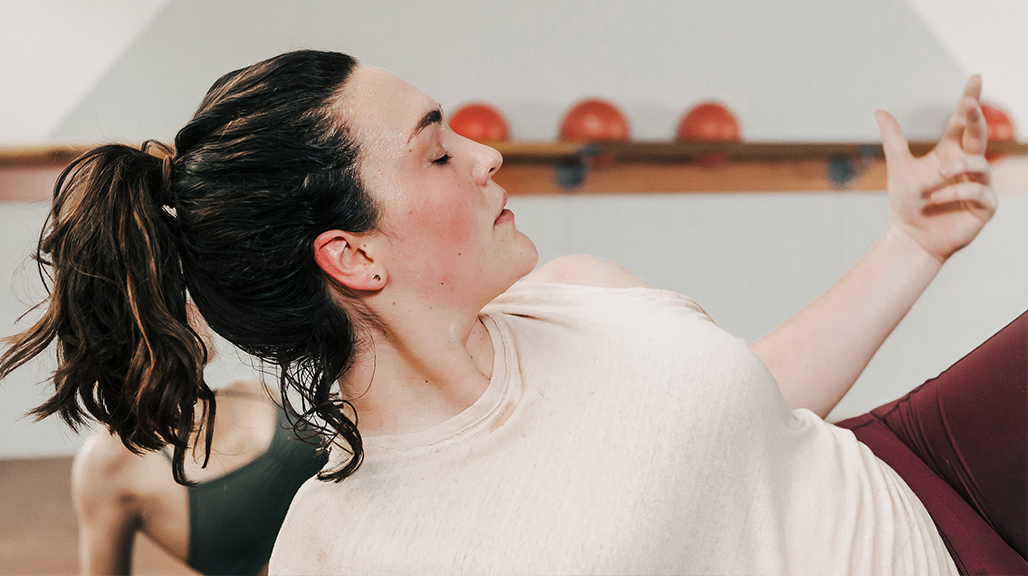Connect
4 WAYS TO STOP FEELING TIRED ALL THE TIME (NO CAFFEINE REQUIRED!)
Have you ever had those days (or let’s face it: weeks or months) when it’s a challenge to even keep your eyes open? The struggle is certainly real—especially as the days grow shorter and it feels like it’s dark around the clock. And though fatigue sends many of us straight for a cup of bottomless caffeine, there are alternative ways to shake that groggy-all-the-time feeling. Here, a few simple, science-backed moves to give your body and mind a natural wake-up call.
GET GOOD SHUT-EYE. This one seems absurdly obvious, we know, but since studies show that one in three adults don’t get enough sleep, it bears repeating. Short-changing yourself on sleep is a common culprit behind fatigue. Try treating your own bedtime as you would a child’s. Keep it consistent—even on weekends—and just as you wouldn’t let your kid stall his or her way to delayed shut-eye, don’t allow yourself to stay up to finish one more chapter or stream one more episode. Hop into bed early, and try increasing both the number of hours you’re getting (most adults need between 7-9) and the quality of those hours (no tech in bed, wear a sleep mask, set a cool room temperature) to wake up feeling your best.
EAT ENERGY-BOOSTING FOODS. Start each and every day with a protein-packed breakfast to jumpstart your metabolism, and follow it with well-balanced meals to sustain your energy. Complex carbohydrates, high fiber, leafy greens rich in vitamin B-12, healthy fats, and lean protein are all key ingredients in fighting fatigue. For a snack, grab a handful of almonds or peanuts, which are packed with magnesium and folic acid for energy and cell production.
DRINK PLENTY OF WATER. Feeling tired is one of the first signs of dehydration, which slowly chips away at the bodily functions you need to get through the day. Next time you’re feeling zonked, downing a glass or two of water can help zap the sleepiness.
MOVE MORE. It’s the last thing you feel like doing when you’re exhausted, but exercising is a proven way to fight fatigue. Working out regularly helps naturally balance out hormones, increase insulin resistance, and improve sleep—all key factors in energy levels. So the next time you’re tempted to crash out on the couch, push play on a workout, do a plank, or opt for a brisk walk outside instead.
It’s worth noting that fatigue is a common side effect of numerous conditions, so if you’re feeling unusually sluggish and tired, it may be best to connect with your doctor.
Want to rest your head on that peaceful bed in the image above? You can when you book a stay at this picture-perfect guest house!
Have you ever had those days (or let’s face it: weeks or months) when it’s a challenge to even keep your eyes open? The struggle is certainly real—especially as the days grow shorter and it feels like it’s dark around the clock. And though fatigue sends many of us straight for a cup of bottomless caffeine, there are alternative ways to shake that groggy-all-the-time feeling. Here, a few simple, science-backed moves to give your body and mind a natural wake-up call.
GET GOOD SHUT-EYE. This one seems absurdly obvious, we know, but since studies show that one in three adults don’t get enough sleep, it bears repeating. Short-changing yourself on sleep is a common culprit behind fatigue. Try treating your own bedtime as you would a child’s. Keep it consistent—even on weekends—and just as you wouldn’t let your kid stall his or her way to delayed shut-eye, don’t allow yourself to stay up to finish one more chapter or stream one more episode. Hop into bed early, and try increasing both the number of hours you’re getting (most adults need between 7-9) and the quality of those hours (no tech in bed, wear a sleep mask, set a cool room temperature) to wake up feeling your best.
EAT ENERGY-BOOSTING FOODS. Start each and every day with a protein-packed breakfast to jumpstart your metabolism, and follow it with well-balanced meals to sustain your energy. Complex carbohydrates, high fiber, leafy greens rich in vitamin B-12, healthy fats, and lean protein are all key ingredients in fighting fatigue. For a snack, grab a handful of almonds or peanuts, which are packed with magnesium and folic acid for energy and cell production.
DRINK PLENTY OF WATER. Feeling tired is one of the first signs of dehydration, which slowly chips away at the bodily functions you need to get through the day. Next time you’re feeling zonked, downing a glass or two of water can help zap the sleepiness.
MOVE MORE. It’s the last thing you feel like doing when you’re exhausted, but exercising is a proven way to fight fatigue. Working out regularly helps naturally balance out hormones, increase insulin resistance, and improve sleep—all key factors in energy levels. So the next time you’re tempted to crash out on the couch, push play on a workout, do a plank, or opt for a brisk walk outside instead.
It’s worth noting that fatigue is a common side effect of numerous conditions, so if you’re feeling unusually sluggish and tired, it may be best to connect with your doctor.
Want to rest your head on that peaceful bed in the image above? You can when you book a stay at this picture-perfect guest house!










0 people have left a comment. Join the conversation!
View Comments